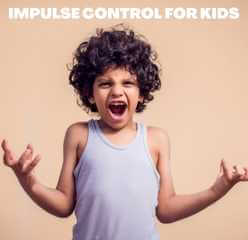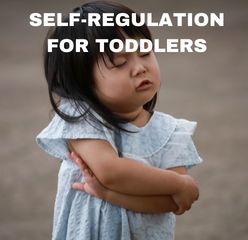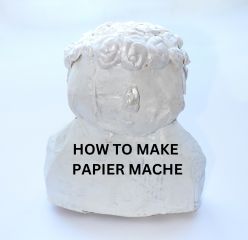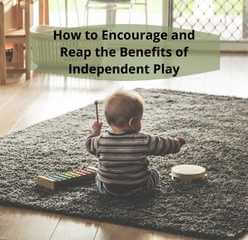Is it difficult for your child to wait, resist touching things he is not allowed to, or take risks? If yes, then learning some impulse control activities can benefit them.
Impulsivity or impulsive behavior is a common behavioral problem in kids. Generally, kids with ADHD (Attention-Deficit/ Hyperactivity Disorder), anxiety, autism, and similar mental health problems are impulsive. Impulsive kids cannot control their function as their brains cannot operate the executive functions properly. These eight executive functions include flexible thinking, task initiation, planning and prioritizing, emotional control, impulse control, working memory, self-monitoring, and organization.
This article has listed some of the best impulse control activities for kids. You will also learn what actions can harm kids’ impulsive behavior.

Reasons Why Kids Are Impulsive
First, remember that it is not only your kid who is impulsive. Impulsivity is typical developmental behavior in kids, and with simple, effective activities, you can help your kids.
Your kid can be impulsive for several reasons. Some of the most common reasons that entice impulsive behavior in kids are;
- Frustration
- Tiredness
- Excitement
- Lack of skills
- Competition with other kids
Human behavioral psychology is very complicated, and you cannot pinpoint exact reasons for any behavior. Hence, you may need to find other deep-rooted reasons for your kid’s impulsive behavior.
Significance of Teaching Impulse Control to Kids

Impulse control is an essential life skill that can positively impact different aspects of life in the long run. Impulsive people who act without thinking or lose control whenever things go out of order cannot lead a peaceful life. The simplest example is spending extra money on something you already have but buying an extra just for fun or you can’t resist it.
Hence, attention to the kids’ behavior is essential to developing impulse control. Simultaneously, keep in mind that if your kid throws tantrums or is having fits, it does not make them a “bad kid .”There are no good or bad kids, and you only need to find out how you can develop good behavior in your kids.
7 Effective and Interactive Activities for Impulse Control

You may have heard of several ways to help control your child’s impulsive behavior from various sources. Here, we have mentioned the seven most effective and fun activities for impulse control for children of all ages. Indeed, not all of them will work for every child as they are unique and require special attention. However, we hope these activities will prove helpful according to your child’s psychology and interests.
- Red Light, Green Light, Yellow Light
This classic game has all the necessary elements for exercising impulse-controlling behavior. The kids learn to listen, follow the rules and control their actions through this game.
Once the kids get familiar with the game’s rules, you can guide them to use it as a self-control tool. Teach your kids to imagine having their traffic light in their heads, and ask them to check this light before acting on their impulses. If the imaginary traffic light is red, the brain tells you not to stop or get into trouble. And if the light is green, proceed with your decision as it will be beneficial.
Your brain cannot make a concrete decision if the light is yellow. Thus you must ask your teacher or parent for help. Through this practice, the kids will learn to grasp control over their snap decisions and actions.
- Balloon Toss
Balloon toss is a simple yet effective activity for kids to learn impulse control. For this, give an inflated balloon to your kid. Instinctively, the kid will immediately try to throw the balloon in the air. However, you will forbid them not to throw the balloon and hold it for about 15 seconds (change the duration according to the kid’s stamina).
But remember not to turn this impulse control activity into a punishment. You want the kid to feel a little agitated and develop an impulsive intrigue to throw the balloon. After the specified period, let them throw the balloon. Then, remind them how they have controlled themself from acting on their impulse using a few sentences.
- Simon Says
Simon Says is another fun, interactive and impactful game. This fun game helps teach kids numerous lessons in a single go. First, this game heightens their listening abilities and makes them more responsive and agile to the commands. Second, this game teaches them to restrain themselves from performing any physical activity without processing its impact. Finally, the kids learn to control their impulsive behaviors.
- The Marshmallow Test
A renowned psychologist, Walter Mischel, created the marshmallow test in the 1960s to test children’s potential to delay gratification. This test allows the children to choose between an immediate but small reward and a better reward after a while.
For this experiment, sit your kid in a room with no distractions such as toys, TV, or books. Give your child a single marshmallow or a small bunch of their favorite treats. Tell them you will finish a home chore, and they will have to wait for you to eat these treats. Plus, ask them if you will double the treats if they wait this while.
The minute you exit the room, your child will start weighing the available options. This activity will incite their brain to think and analyze a situation before acting on their desire. The kid will try to evaluate the consequences of the final decision after contemplating the pros and cons of two different scenarios. Furthermore, this activity allows children to learn self-control.
- The Dance Party Freeze Game
This game is one of the most fun and easiest impulse control activities for kids of all ages. Regardless of age, small kids, young children, teens, and grown-ups enjoy playing this delightful game.
This game allows the participants to get out of their comfort zone, loosen up and have fun. Let the kids hop, twirl, and dance over an upbeat song, and as soon as the song stops and the leader says “freeze,” every kid should stop dancing.
This game is great for kids who struggle with impulsivity and get annoyed easily. You can help them improve their impulsive behavior by indulging them in fun games like this.
- Use A Reward System
A reward system is one of the most recommended methods for developing executive functioning skills in young children with executive dysfunction. This system is particularly effective for older kids to help them practice impulse control.
For this system to work out, taking your kid on board is essential. Enlist the impulsive behaviors you and your kid need to get straight. Next, check how often your kid repeats those impulsive actions in a day. You need to set two end goals; first, to reduce the number of times your kid behaves impulsively, and second to improve the number of times he controls his impulsive action and behavior positively. Keep track of these instances and make a daily report. Give a handsome reward to your kid for controlling impulsive behavior and being well-behaved in these situations.
- Extra Pocket Money
This is another excellent activity for older kids to learn impulse control. Give your kids extra money and let them decide how they wish to spend it. The kids can either pay this money to buy their favorite items on the same day or can save it for later to get movie tickets or splurge it while hanging out with friends.
This activity is similar to “the marshmallow test” but with countless distractions to decide. Your kid will have to analyze the pros and cons of his decisions. Additionally, the kid will be mindful of making a good decision so that the parent will give them extra pocket money next time.
Impulse Control Activities That Will Not Work on Kids
As a parent or teacher, you must remember who the adult is in any given situation. It is essential to not lose your calm and try to handle impulsive kids intelligently and compassionately. Hence, being harsh on your kids or grounding them will not be practical impulse control activities.
Instead, the kids may become more stubborn and agitated with constant scolding or strict behavior. An essential reason that consistent grounding does not work is that kids with executive dysfunction cannot remember the consequences of their actions. Hence, no matter how long or often you ground them, they’ll forget about it.
You may also like: Self Regulation activities for Toddlers
Wrapping Up
Teaching kids to control their impulsive behavior is one of the most important developmental skills. Control of their nerves and restraining impulsive physical acts can help children lead peaceful lives. Try the above activities for impulse control and help your kids practice impulse control.
It is essential to note that kids working on their impulsive behavior often feel anxious when they are behaving impulsively but trying to control it. So, try to understand the change in their behavior and work with them side by side.






